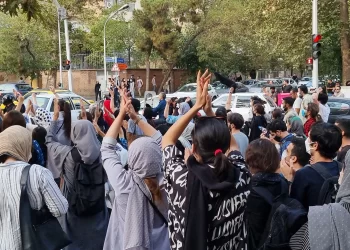Human Lives Human Rights: Recognizing the signs of human trafficking in general can be difficult. If a woman or girl shows some of these symptoms, she may have been trafficked:
- Appears fearful, anxious, depressed, submissive, tense, or overly nervous or paranoid
- Seems very scared if law enforcement is talked about
- Does not make eye contact
- Is very underweight
- Shows signs of physical abuse (e.g., bruising, cuts, restraint marks on the wrists)
- Has very few or no personal possessions
- Has someone else in control and insisting on being present or translating
- Cannot say where she is staying or give you an address
- Does not know where she is (the country, state, or town or city)
- Has no sense of time of day or time of year
Effects of sexual trafficking
The physical and mental health effects of sexual trafficking are serious. Studies show that women who have been trafficked for sex have higher levels of fear, are more isolated, and have greater trauma and mental health needs than other victims of crime. Women and girls who have been trafficked may also misuse alcohol or drugs as a way to cope with their situation.
The experience of being trafficked may induce or exacerbate mental health concerns and symptoms. While those with pre-existing mental health concerns or disabilities are also extremely vulnerable to the manipulation and exploitation of trafficking.
Possible psychological effects of human trafficking include:
- Depression
- Anxiety disorders, including panic disorder
- Post-Traumatic Stress Disorder (PTSD)
- Substance use and disorders
- Shame and guilt
- Alienation and isolation from social supports
- Suicidal ideation (thoughts of suicide)
- Identity disturbance/confusion
The risk of developing a mental health disorder, as a victim of trafficking, may be influenced by multiple factors:
- Past experience of trauma/abuse
- Duration of exploitation
- Violence
- Restrictions on movement while being trafficked
- Greater number of unmet needs
- Lower levels of support following trafficking
Many of us are familiar with most of the psychological effects on this list, as they are commonly experienced by individuals impacted by other forms of trauma or negative life events. However, understanding how these diagnoses and symptoms impact someone’s ability to cope and survive while being trafficked or afterward may be helpful in working with and relating to victims of trafficking.
Depression, Anxiety and PTSD:
Depression: When a person is depressed, they may experience symptoms that make it difficult to realistically evaluate and change their circumstances. They may have trouble thinking clearly and making decisions, properly caring for themselves, or feeling worthy or motivated to change.
Anxiety: When a person has an anxiety disorder, they may experience general or specific fears and worries. The person may become preoccupied with anxious thoughts, making it difficult to function normally, as they attempt to navigate through their fears and worries. They may have trouble making decisions and concentrating, changing their routines, or trusting new people and situations.
PTSD: When a person suffers from PTSD, they may avoid people, places, and things, in an attempt to avoid any triggers/reminders of the traumatic event/s. They may experience intrusive thoughts, images, and flashbacks, which impact their ability to cope in the present. They may also experience mood changes and trouble concentrating.
When someone is trying to help a victim of human trafficking, it may be frustrating because it might appear that the person is not receptive to help or committed to making any changes. It is important to be aware of the symptoms of depression, anxiety, and PTSD and how they may impact a person’s ability to cope, think, plan, and commit. In addition, traffickers use these symptoms to maintain control over their victims, taking advantage of the fact that victims may be struggling to evaluate reality and make informed decisions. Awareness of symptoms, patience and understanding, and referrals to appropriate professional services are essential.
Substance Use Disorders:
Substance Use Disorders: When a person uses substances to self-medicate or is addicted to one or more substances, they may spend a large amount of time obtaining, using, and recovering from the substance. This leaves little time to evaluate their circumstances or make plans to change. While under the influence or going through withdrawals, it can be challenging to think clearly and make healthy decisions. This may lead to self-destructive behavior. In addition, traffickers use substances to control victims, either by introducing them to substances or by controlling access to substances, allowing them to control, manipulate and exploit the victim.
When attempting to help a victim of human trafficking, it is important to recognize that substance use is a common consequence which complicates a victim’s ability to get out of the life and make changes. Like depression, anxiety, and PTSD, the person may seem unreceptive to help and uncommitted to changes, due to the grasp the addiction has on the person. Most people need professional treatment for their addiction, so it is imperative victims with substance use issues are linked to services that can provide appropriate help for addiction.
These four mental health diagnoses and the corresponding symptoms may be typical reactions to stress and trauma. The symptoms associated with these conditions can be serious, persistent, and challenging to manage and live with. It is crucial that individuals with these symptoms are provided with supportive resources and services to help educate about and address their symptoms and learn how to cope and manage them so that they may lead happy, healthy lives.
















